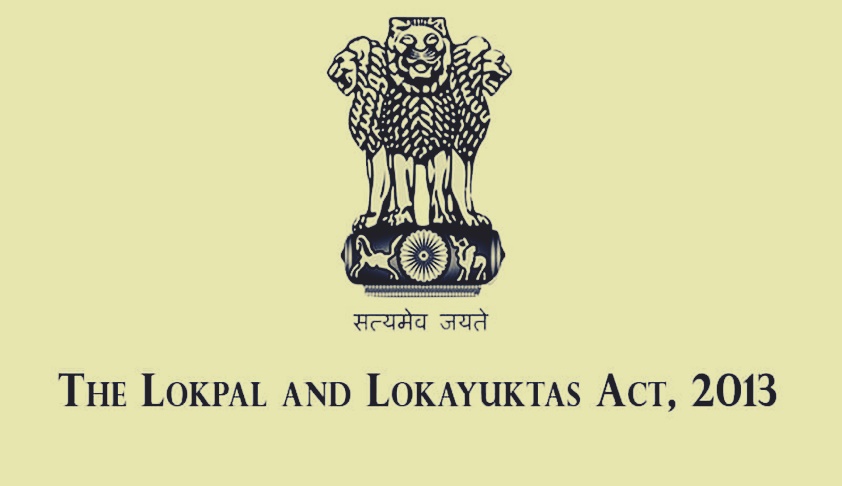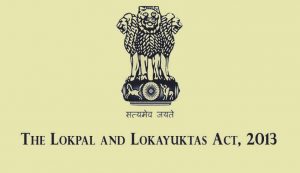Lokpal’s website launched

The Website of the Lokpal was inaugurated on 16th May 2019 by the Chairperson, Justice Pinaki Chandra Ghose. The Website has been developed by National Informatics Centre (which is instrumental in steering e-Government/e-Governance applications in government, ministries/departments at the Centre, States, Districts and Blocks) and provides basic information with respect to the working and functioning of the Lokpal. The Website can be accessed at http://lokpal.gov.in

What is Lokpal?
Lokpal means “caretaker of people” and is an anti-corruption authority or body of ombudsman who represents public interest.
Lokpal is the first institution of its kind in independent India, established under the Lokpal and Lokayuktas Act, 2013 to inquire and investigate into allegations of the corruption against public functionaries who fall within the scope and ambit of the Act.
The Lokpal and Lokayuktas Act, 2013 provides for the establishment of a body of Lokpal for the Union and Lokayukta for States to inquire into allegations of corruption against certain public functionaries and for matters connected therewith or incidental thereto.
This is a Central law and extends to the whole of India and it shall apply to “public servants” in and outside India.
The Lokpal is empowered to inquire or cause an inquiry to be conducted into any matter involving, or arising from, or connected with, any allegation of corruption made in a complaint in respect of any ‘public servant’ including the Prime Minister, Member of Parliament, Officers and Officials of the Central Government.
Lokpal appointed
The Government appointed Justice Pinaki Chandra Ghose, as the first Chairperson or Lokpal on 23rd March, 2019. The Government has also appointed four Judicial and four non-Judicial Members.
The process of notifying the rules and regulations including the format for receiving complaints is being developed.
Copy of the Act can be seen or downloaded at: http://lokpal.gov.in/pdfs/act-2013.pdf
Are trustees & officers of charitable institutes also “public servant”?
Persons involved even if in a fiduciary capacity as trustee, director or officer with certain charitable institutions may qualify as “Public Servant” and this is apparent under Section 14(1)(f),(g),(h) of the Lokpal and Lokayuktas Act, 2013
Section 14(1)(f): “any person who is or has been a chairperson or member or officer or employee in any body or Board or corporation or authority or company or society or trust or autonomous body (by whatever name called) established by an Act of Parliament or wholly or partly financed by the Central Government or controlled by it:
Section 14(1)(g): “any person who is or has been a director, manager, secretary or other officer of every other society or association of persons or trust (whether registered under any law for the time being in force or not), by whatever name called, wholly or partly financed by the Government and the annual income of which exceeds such amount as the Central Government may, by notification, specify (the amount specified by the Central Government is one crore Rupees);
Section 14(1)(h): “any person who is or has been a director, manager, secretary or other officer of every other society or association of persons or trust (whether registered under any law for the time being in force or not) in receipt of any donation from any foreign source under the Foreign Contribution (Regulation) Act, 2010 (42 of 2010) in excess of ten lakh rupees in a year or such higher amount as the Central Government may, by notification, specify.
Explanation to Section 14(4) states: “For the removal of doubts, it is hereby declared that a complaint under this Act shall only relate to a period during which the public servant was holding or serving in that capacity.”
Disclosure of personal assets
Section 44 of Lokpal and Lokayuktas Act, 2013 states: “On and from the date of commencement of this Act, every public servant shall make a declaration of his assets and liabilities in such form and manner as may be prescribed”.
As stated earlier, process of notifying the rules and regulations including the format for receiving complaints is being developed.
Once the Rules are notified and the forms for disclosure of assets are finalized, trustees & officers of charitable institutions falling under the definition of ‘public servant’ u/s 14(1)(f),(g) & (h) shall be required to declare their assets to the Ministry of Home affairs (if the institution where they are associated as director, trustee or officer receives foreign contribution in excess of ten lakh rupees or more in a year) or to the relevant Ministry of the Central Government wholly or partly financing the charitable institution.